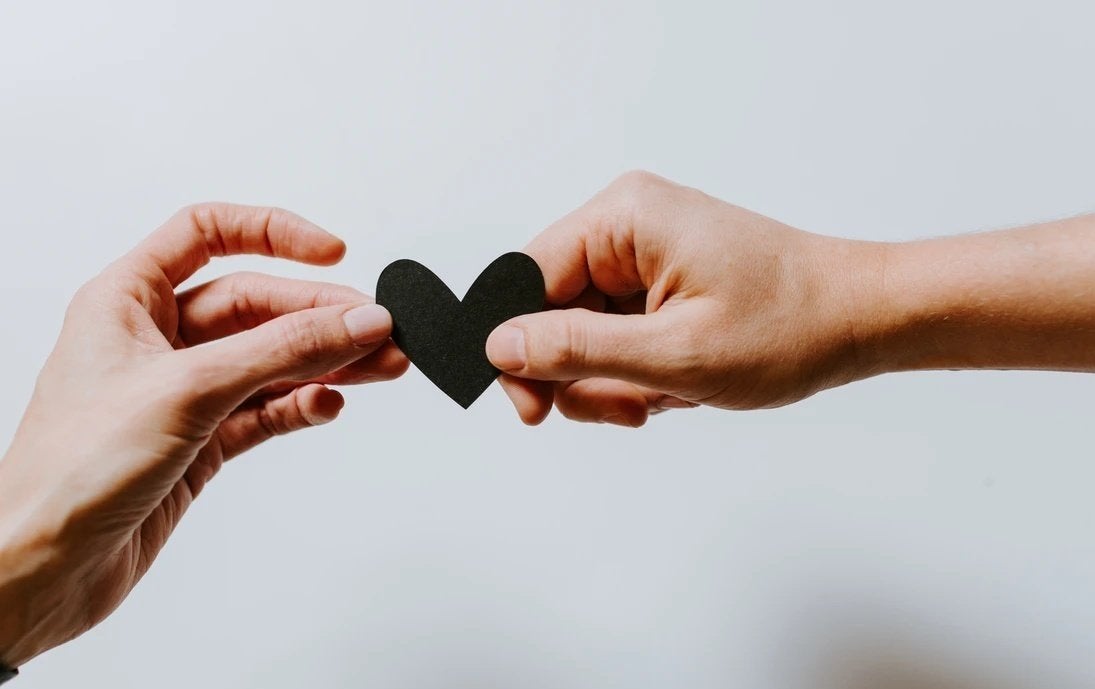“Love knows no bounds.”
I was raised by living proof of this: my maternal grandparent’s relationship. My grandparents met while working for the Indian army and before they knew it, they had fallen in love with each other. I grew up hearing about their intercultural and interfaith relationship; how a couple in 1960s India successfully crossed many barriers to get married.
My grandma was from a northern Christian family, and my grandpa was from a very traditional southern Hindu family. Moreover, their respective families were of completely different socioeconomic statuses. My grandma was the first in her family to go to college before she entered a career in nursing, while my grandpa came from a long line of highly educated family members. Their story always seemed worthy of a romance novel.
Only when I entered my teenage years did I learn just how difficult their journey was. My grandma, entering into a highly traditional and religious family, was prepared for backlash. To combat these issues, she married my grandpa in a Hindu ceremony, legally changed her first name to a Hindu name, and made the decision to raise her future children under Hinduism, not her Christian faith. Despite all of this and more, she struggled to gain acceptance into his family.
There were many obvious differences in their intercultural relationship. She did not understand any of the languages my grandpa’s family spoke. Being new to the culture, she did not know how to cook South Indian food, plan or lead South Indian-style Hindu prayers, and more expected responsibilities of a South Indian daughter-in-law. The marriage was not easy for my grandpa either, as he also had much to learn about my grandma’s values and ways of thinking, and was unfamiliar with the way her family lived. For instance, she grew up eating meat as a Christian, but my grandpa, as a Brahmin Hindu, had never imagined meat in a household.
It’s due to these exact expected differences that there are many people who prefer to marry within their culture or faith.
I talked to Tejas Srirama, a freshman at Oregon State University. He explained that although he is good friends with people of different beliefs, “when it comes to an intimate relationship, religion is a hard one to compromise on.”
He described how when thinking about starting a future family, it’s important to him that his partner’s major values align with his, from past religion to alcohol usage and more.
Others agree with the idea that people from different cultures or religions are bound to have major differences in thinking that may disrupt a relationship. Isabella Kulstad, a student at Tulane University, described her former relationship with a South American man. Their upbringing and cultures were drastically different about gender roles, which took a toll on their relationship.
“My partner was trained to be an alpha male… a toxic masculinity trait that echoed through his South American upbringing,” she said.
She told me that while she recognizes traits like this exist in most cultures, it was much more prominent in his family and culture than in hers.
Another student I talked to, a sophomore at the University of Oregon, described how in her past relationship her partner “never really understood that there were inherent cultural differences.” Despite the issues they had because they couldn’t connect in terms of culture, she says that she would pursue another intercultural relationship if the person makes a “proactive effort and genuine interest” to understand her and her culture.
Since my grandparents’ time of marriage, views about intercultural and interreligious relationships have changed around the world. This is especially true in the United States, as described in an article by Pew Research Center: “A comparison of recent and older marriages shows that having a spouse of the same religion may be less important to many Americans today than it was decades ago.”
Seeing my own grandparents and even my own parent’s relationships across cultures and religions has shown me the beauty of a relationship like that. However, as I’ve grown up, I’m no longer blind to how difficult it is to pursue intercultural marriages. I’ve wondered for the past few years, as I think about my own ideal life partner if my grandparents’ journey was worth it despite all the obstacles involved. Luckily, I had many peers to discuss this topic with and learn new perspectives.
Some people I spoke with echoed the difficulties of an intercultural or interreligious relationship. I discussed this topic with a student from Virginia Commonwealth University who is in a long-term relationship with someone of a different religion. Both of them have had to hide their relationship from family for years, as it would not be accepted. She told me, “the guilt of lying to some of the closest people in our lives is really difficult and can put a lot of pressure on the relationship.” Another student at VCU said that in her intercultural relationship, she’s “noticed there is just a difference in expectations” that stem from religion and culture.
I asked them how they overcome these challenges and pursue a steady relationship. Some common tips I learned were learning to separate opinions from parents’ opinions, open communication and understanding and choosing to live in the moment. Mellie Fajardo, who has been in a long-term relationship for years and is now engaged, said, “since we’ve been together for so long, we’ve built a really communicative relationship, so we’re able to express our thoughts about our cultures to each other and know that the other person is really listening.” The most important thing everyone said was that they realized the good of the relationship outweighed the difficulties. They each made a conscious choice to pursue the happiness the relationship gives them.
I asked my grandparents how they have maintained such a strong, healthy relationship for 55 years even with the hardships. Their response was inspiring: “Realize that every family you marry into is going to be different. Cultural and religious differences are only the obvious parts.” This mindset is so open-minded and it makes sense that despite the challenges, they’ve built a strong foundation in their marriage. At the end of the day, most people I talked to agree that intercultural and interfaith relationships can succeed if both people are willing and excited about that type of relationship. Perhaps love does have bounds – entering a committed relationship without recognizing the barriers and what may hold back success is not a strong foundation.
However, for people that realize their love is bigger than the boundaries are, a successful relationship is not only possible but destined to happen. Sometimes the bounds are overpowering, though, and that is okay. Every relationship is different and the bottom line seems to be that people should identify what they care about most in their relationships — whether it’s religion, family styles, being able to learn about another culture or more — and be confident in sticking to those values and preferences.



